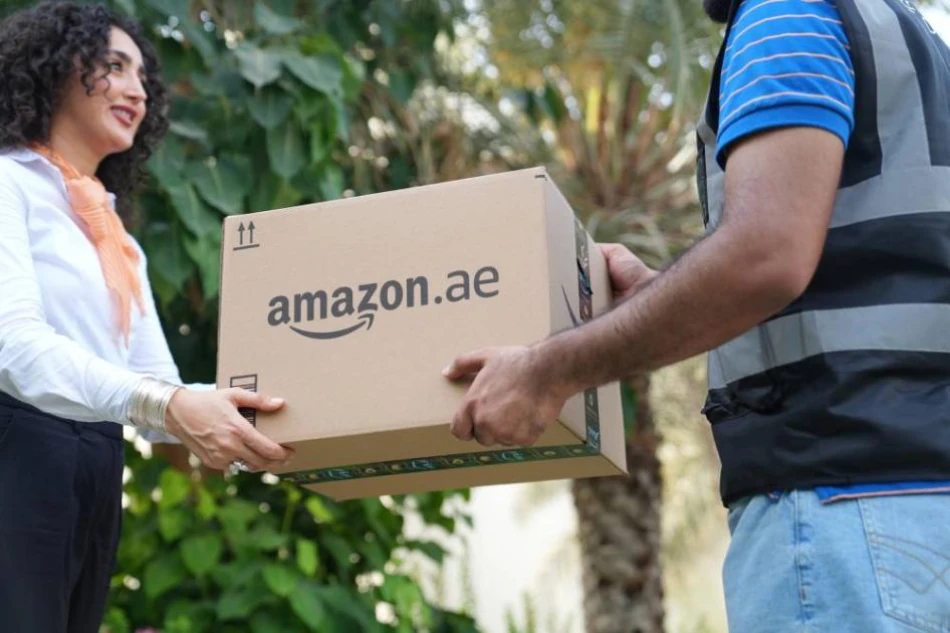
Amazon and Dubai Future Foundation Launch Innovative Delivery Services Project
Dubai Launches Walking Delivery Pilot with Amazon to Revolutionize Urban Logistics
Dubai is pioneering a groundbreaking approach to last-mile delivery through a new partnership between the Dubai Future Foundation and Amazon UAE, introducing pedestrian-based delivery services in high-density neighborhoods. This innovative pilot program, operating under Dubai's regulatory sandbox framework, aims to reduce traffic congestion, cut carbon emissions, and create flexible employment opportunities while positioning the emirate as a global leader in sustainable urban logistics.
The Dubai Sandbox Initiative: A Testing Ground for Tomorrow's Economy
The walking delivery project emerges from Dubai Sandbox, a regulatory innovation platform recently approved by Sheikh Hamdan bin Mohammed bin Rashid Al Maktoum, Crown Prince of Dubai. This initiative represents a strategic shift toward collaborative innovation between government, private sector, and regulatory bodies, designed to accelerate Dubai's economic competitiveness across multiple sectors.
Amazon UAE's participation marks a significant endorsement of Dubai's regulatory flexibility. The company joins the sandbox program specifically to explore the future of seasonal employment models, indicating how major tech companies are increasingly viewing the UAE as a testbed for global innovations.
Walking Delivery: Addressing Urban Density Challenges
The pilot focuses on Dubai's densely populated areas, where traditional vehicle-based delivery faces mounting challenges from traffic congestion and parking limitations. By deploying foot-based delivery personnel, the program targets underutilized working hours and creates opportunities for entrepreneurs and small business owners seeking flexible income streams.
This model directly addresses two critical urban challenges: the growing demand for rapid delivery services and the environmental impact of last-mile logistics. As e-commerce continues expanding in the Middle East, with the UAE market expected to reach $9.2 billion by 2026, innovative delivery solutions become essential for sustainable growth.
Environmental and Economic Benefits
The walking delivery system promises measurable environmental advantages by reducing vehicle dependency in urban cores. This aligns with Dubai's broader sustainability goals and the UAE's commitment to achieving net-zero emissions by 2050. The model also creates a new category of flexible employment, particularly valuable in post-pandemic economic recovery.
Global Context: Learning from International Models
Dubai's approach mirrors successful pedestrian delivery models in major cities worldwide. New York has seen growth in walking delivery services, particularly in Manhattan's dense neighborhoods, while London's congestion charge zones have encouraged similar innovations. However, Dubai's systematic regulatory approach through its sandbox framework offers a more structured testing environment than ad-hoc implementations elsewhere.
Singapore's smart nation initiatives provide another parallel, where government-private partnerships drive urban innovation. Dubai's model appears more ambitious in scope, targeting comprehensive economic transformation rather than isolated pilot projects.
Strategic Implications for Dubai's Economic Vision
This initiative directly supports Dubai Economic Agenda D33, the emirate's plan to double its economy over the next decade and establish itself among the world's top three economic cities. The sandbox approach demonstrates Dubai's commitment to evidence-based policy development, using real-world data to inform future regulations.
Ronaldo Mouchawar, Amazon's Vice President for the Middle East, Africa, and Turkey, emphasized the partnership's role in enhancing customer service while supporting entrepreneurship and economic growth. His comments suggest Amazon views Dubai as a strategic innovation hub for regional expansion.
Khalfan Juma Belhoul, CEO of Dubai Future Foundation, positioned the collaboration as exemplifying public-private cooperation in building innovation-supportive regulatory environments, indicating Dubai's systematic approach to future-proofing its economy.
Market Implications and Future Outlook
For logistics companies and retailers, Dubai's walking delivery pilot offers insights into sustainable urban distribution models. Success here could influence similar initiatives across the Gulf region, where rapid urbanization creates comparable challenges.
The regulatory sandbox model itself represents a competitive advantage, allowing Dubai to attract international companies seeking innovation-friendly testing environments. This positions the emirate favorably against regional competitors like Riyadh or global innovation hubs like Singapore.
The pilot's focus on data collection for evidence-based policy development suggests Dubai is building systematic capabilities for regulatory innovation, potentially creating a replicable model for other sectors and jurisdictions. This methodical approach to innovation governance could become Dubai's distinctive competitive edge in the global economy.
Most Viewed News

 Omar Rahman
Omar Rahman






